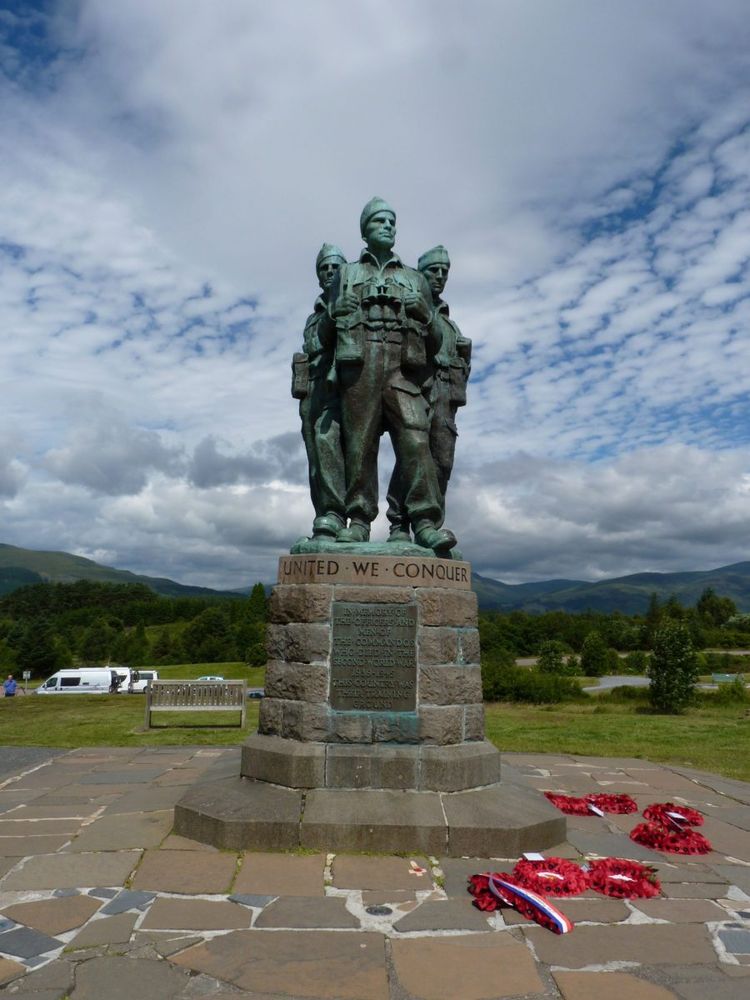Letter from Scotland

Scotland's Role In Preparation For Normandy Landings 80 Years Ago
During our military training, we were fortunate to have access to vast open areas and beaches that were far away from the susceptible cities in southern England. Recently, the heads of state from around the world assembled to honor and pay tribute to the brave acts that occurred in early June of 1944. These events involved a massive, unparalleled operation, where a force of 130,000 soldiers and 7,000 ships launched the most significant amphibious invasion that the world has ever seen.

One year prior, Lord Mountbatten gathered a group of one hundred experienced military leaders and specialists for a meeting in Largs, situated on the Ayrshire coast. The objective was to start planning the operation. Over the subsequent months, numerous soldiers underwent extensive training and preparation on the beaches and hills of Scotland.
During this past week, there have been reports about the creation of makeshift harbors that were named "Mulberry" in Garlieston located near the Galloway coast. The Duke of Argyll's castle situated in Inveraray functioned as a training facility for soldiers coming from various countries such as Britain, Canada, Australia, New Zealand, the United States, Free France, Poland, Czech Republic, and the Netherlands. Meanwhile, Lord Lovet was also preparing his Commandos up on the Morayshire coast for their crucial role in leading the attack on Sword Beach.
It's almost impossible for us to grasp the immense undertaking it took to overcome the Nazis. It's like trying to comprehend the vastness of the cosmos. However, our forefathers and ancestors accomplished it. If they were to find out that there is currently conflict in Europe and that the world is once again perilous, it would undoubtedly sadden them.
As yet another "non-wartime" election progresses, it's expected that both the Conservative and Labour parties would focus on defence this week. They are both committed to increasing defence spending, from 2% to 2.5% of national income. Rishi Sunak is proposing a National Service programme, which would open up 30,000 training spots in the armed forces for 18-year-olds. Meanwhile, Sir Keir Starmer has promised to replace the outdated nuclear-armed submarines that are currently stationed on the Clyde. He also stated that he would be willing to use nuclear weapons if necessary.
It's really disheartening that they don't make any solid commitments to prevent wars from occurring in the future. They could, for example, increase the strength and resources of the United Nations, or rejoin the European Union, which was a major peace initiative born from the Second World War that unified our economies.
It's hard to fully grasp the immense task of reconstructing Britain following the war. Yet, the Labour government, led by the stoic Clement Atlee, managed to accomplish it, despite lacking the charm of Keir Starmer. If Labour secures the election, we must trust in their abilities to overcome 14 years of stringent budgeting and implement policies that can steer the country towards recovery.
According to recent surveys in Scotland, the Labour party seems to be in a good position. You Gov, a well-known polling organization, conducted a survey of 50,000 people in the entire United Kingdom, including 5,000 in Scotland. According to the results of this survey, it appears that Labour will win the election by a huge margin, even more than during Tony Blair's tenure. In Scotland, Labour is projected to win 34 seats, while the Scottish National Party is expected to win just 17 seats (compared to the 43 they currently hold), the Conservative party is expected to win 5, and the Liberal Democrats, only 1.
During a televised debate on Monday featuring four leaders, SNP leader John Swinney stumbled a bit when asked whether he supports new oil exploration in the North Sea. The SNP has since been attempting to clarify their stance by asserting that each application for exploration should be evaluated impartially based on strict environmental standards. However, opposition parties across the political spectrum, including the Greens, the Reds, and the Blues, have criticized this explanation as evasive. The term "transition" has become a highly adaptable term in discussions around climate change.
The events happening in Normandy were an important break from all the discussions on this ongoing election campaign, which serves as a reminder that there's more to our country's story than just politics. Moving forward, Scotland's men's football team will be heading to Munich soon to play against Germany in the opening game of the European Championships. This occasion is a perfect illustration of how peace has prevailed in our part of the continent. Around 200,000 fans will make the journey to Germany to support their team, but also to recognize and enjoy our shared human experience.









































